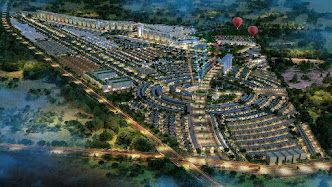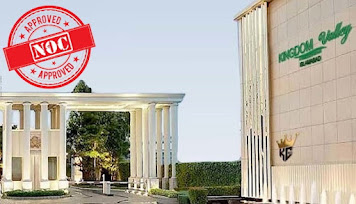What is Real Estate
Real Estate:
Real estate can be defined as the land and all the
improvements whether natural or artificial including water, trees, minerals,
buildings, homes, shops, fences, and bridges attached to it. Real estate
includes dealing with buying, selling, or renting out land properties and is
generally associated with the possession of immobile properties and selling
them. Real estate is different than real property which includes personal
belongings such as jewelry or automobiles that are not related to the land.
Key Terms:
Here is a brief guide from Record Marketing about some key
terms related to real estate that will help you learn the term in a better way.
Land:
The surface of the earth down to its core and upward to the
airspace and all the minerals including all the natural and artificial
resources associated with it is termed as land.
Real Estate:
Real estate includes immobile properties such as land and
every permanent addition made to it by humans such as houses, skyscraper
buildings, or industries.
Real Property:
Real estate is basically the real property owned by a person
and has immobility as its most salient characteristic. Real property or real
estate is different from personal property which is a broad term and includes
all types of properties which are not real properties. Examples of personal
properties include smartphones, vehicles, clothing, and furniture.
Characteristics of
Real Estate:
Following are the few salient features and characteristics
of real estate;
·
It can be bought and sold.
·
It can be owned by individuals, companies,
organizations, or the government.
·
It can be improved or left unimproved.
·
It is finite and limited.
More specific characteristics of real estate are as follows;
Physical
Characteristics of Real Estate:
Real estate can be differentiated from other economical
assets in three physical ways;
Uniqueness:
Though several pieces of land may resemble in numerous
regards, no two land pieces are entirely similar and always have some key
differences.
Immobility:
Every piece of land has a fixed geography that cannot be
altered. Though the topography of the land can be altered its location always
remains fixed.
Indestructibility:
The land is the only asset that can neither be stolen nor
destroyed and hence is the most durable of all other assets.
Economic
Characteristics of Real Estate:
Several factors influence the value of land which are as
follows;
Scarcity:
The general notion about land is that it is infinite and is
not considered while the truth is that the supply of land is fixed and limited.
Improvements:
Any amendment made to the land in order to evaluate its
worth is called improvement. Improvements are of two types and are as follows;
·
Improvement on the land includes the
amendments of private nature such as building homes or fencing them.
·
Improvements to the land include the
amendments of public nature such as constructing sewer systems or sidewalks.
The permanence of Investment:
Real estate is a source of permanent income and a sizable
fixed investment. For example, improvements like drainage and sewerage system
tend to be permanent as they cannot be removed or replaced. Similarly, renting
out your property can get you a fixed amount of monthly income.
Location Preference:
Location is one of the most important economic
characteristics of real estate as the location of any property determines its
net worth.
Types of Real
Estate:
The five main types of real estate are as follows;
Residential Real Estate:
Houses, villas, bungalows, condos, apartments, flats, or any other property used for residential purposes is called residential real estate or residential property. Many housing schemes such as Nova City Peshawar, NovaCity Islamabad, PECHS Islamabad and Eighteen, are offering opportunities to invest in residential real estate.
Commercial Real Estate:
Any property employed for business purposes is called
commercial real estate and includes gas stations, shopping malls, grocery
stores, restaurants, hotels, parking lots, stores, theatres, and offices.
Industrial Real Estate:
Any property utilized for assembling, creation,
dissemination, stockpiling, and innovative work. Models incorporate industrial
facilities, power plants, and distribution centers.
Land:
Includes lacking
property, empty land, and horticultural land (ranches, plantations, farms, and
forest area).
Special Purpose: Property
utilized by people in general, like graveyards, government structures,
libraries, parks, spots of love, and schools.
How the Real
Estate Industry Works
Regardless of the size and intricacy of the housing market,
many individuals will generally think the business comprises just
intermediaries and sales reps. In any case, a huge number of individuals as a
matter of fact make money through the land, in deals as well as in evaluations,
property the board, supporting, development, advancement, guiding, schooling,
and a few different fields. Numerous experts and organizations — including
bookkeepers, modelers, banks, title insurance agencies, assessors, and legal
advisors — likewise rely upon the land business.
The land is a basic driver of financial development in
Pakistan and many other countries such as the US. The industry incorporates
building licenses, lodging starts, and lodging consummations information,
partitioned into three distinct classifications:
·
Single-family homes
·
Homes with 2-4 units
·
Multifamily structures with at least five units,
for example, condo complexes1
Financial backers and experts watch out for lodging begin in
light of the fact that the numbers can give a general feeling of monetary
bearing. Also, the kinds of new lodging start such as that of recently
introduced Nova City Peshawar can give an idea about how the economy is
creating.
Instructions to Invest
in Real Estate
There are various ways of putting resources into land.
Probably the most well-known ways of money management straightforwardly
include:
·
Homeownership
·
Investment properties
·
House flipping
Assuming that you purchase an actual property (e.g.,
investment properties, house flipping), you can bring in cash in two unique
ways: Revenue from leases or rents, and enthusiasm for the land's worth.
Dissimilar to different speculations, the land is emphatically impacted by its
area. Factors, for example, work rates, the nearby economy, crime percentages,
transportation offices, school quality, metropolitan administrations, and local
charges can drive land costs up or down.
Pros and Cons of
Investing in Real Estate:
Pros:
·
Offers consistent pay
·
Offers capital appreciation
·
Enhances portfolio
·
Can be purchased with influence
Cons:
·
Is generally illiquid
·
Affected by exceptionally neighborhood factors
·
Requires large beginning capital cost
·
May require dynamic administration and mastery
Become familiar
with the Basics of Trading and Investing
Hoping to look into exchanging and effective money
management? Regardless of your learning style, there are a very sizable amount
of courses to kick you off. With Udemy, Enablers, or Extreme Commerce you'll
have the option to pick courses educated by genuine specialists and learn at
your own speed, with lifetime access to versatile work areas. Or you can avail
the free consultancy services from our experts at Record Marketing who have
expertise of over 10 years.




Comments
Post a Comment